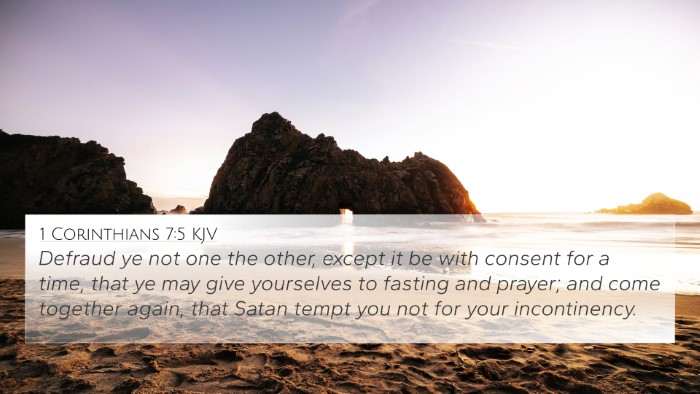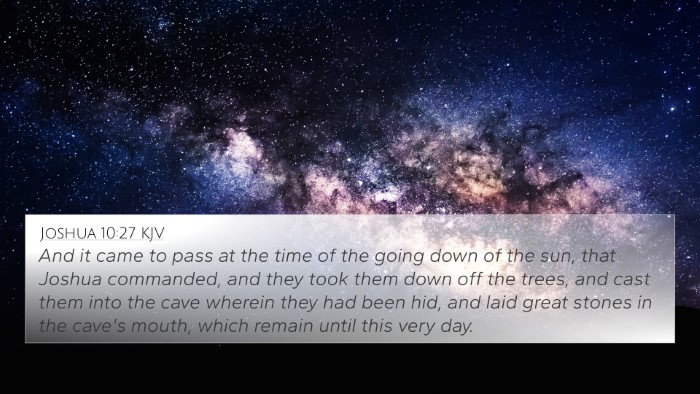Understanding Ecclesiastes 3:5
Ecclesiastes 3:5 states:
"A time to cast away stones, and a time to gather stones together; a time to embrace, and a time to refrain from embracing."
Summary of the Verse
This verse highlights the dichotomy of human experiences and the cyclical nature of life. It suggests that there are appropriate times for various actions, indicating that life consists of seasons where opposing actions may be appropriate.
Insights from Public Domain Commentaries
-
Matthew Henry:
Matthew Henry elaborates on the idea that life's events are ordained by God. He interprets the casting away and gathering of stones as a metaphor for the various challenges and opportunities we face throughout life. Stones can represent burdens or blessings, depending on the context and timing of our actions.
-
Albert Barnes:
Albert Barnes draws attention to the wisdom in knowing the right time for every activity. He notes that the juxtaposition of "to embrace" and "to refrain from embracing" emphasizes the importance of discernment in our relationships and attachments. This time-oriented perspective encourages individuals to align their actions with the seasons of life.
-
Adam Clarke:
Adam Clarke provides a poetic reflection on the verse, suggesting that life is governed by a divine schedule where contrasting actions occur at different times. He argues that understanding these times is vital for navigating the complexities of life and that every part of life, including its oppositions, serves a purpose within God's overarching plan.
Inter-Biblical Connections
Ecclesiastes 3:5 connects with several biblical themes and scriptures:
- Ecclesiastes 3:1: This verse initiates the discussion of time, making it clear that every event has an appointed time.
- James 4:14: "For what is your life? It is even a vapor that appears for a little time and then vanishes away." This verse emphasizes the transient nature of life, similar to the times mentioned in Ecclesiastes.
- Psalm 31:15: "My times are in your hand." This reinforces the idea that God is in control of the timing of events in our lives.
- Jeremiah 29:11: The promise of hope and a future points to divine timing and the significance of waiting for God’s plans to manifest.
- Galatians 6:9: "And let us not grow weary while doing good, for in due season we shall reap if we do not lose heart." This parallels the concept of timing and perseverance through different seasons.
- Romans 8:28: "And we know that all things work together for good to those who love God." This verse ties in with the purpose behind life’s varying times.
- Luke 12:54-56: Jesus talks about discerning the signs of the times, echoing the need for wisdom that Ecclesiastes mentions.
Thematic Connections
This verse presents themes common throughout scripture, such as:
- The importance of timing in decision-making and actions.
- The inevitability of life's changes and the call to embrace every season.
- The understanding that oppositional actions can coexist within the divine plan.
Cross-Referencing Biblical Texts
When studying Ecclesiastes 3:5, it can be beneficial to utilize various tools for Bible cross-referencing:
- Bible concordance - to locate related verses quickly.
- Bible cross-reference guide - to uncover thematic connections across the text.
- Cross-reference Bible study methods - to deepen understanding through comparisons.
Conclusion
Ecclesiastes 3:5 captures the essence of life's seasons, reminding believers of the divine wisdom in timing and the importance of recognizing when to engage in different actions. The verse, along with its inter-biblical connections, encourages reflection on the experiences that shape our journeys.











